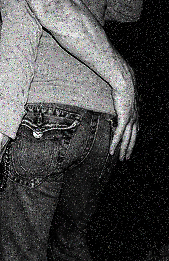Search for data on dark attitudes
 Australian researchers want to hear from anyone who has been groped, grabbed or otherwise made victim of unwanted sexual attention.
Australian researchers want to hear from anyone who has been groped, grabbed or otherwise made victim of unwanted sexual attention.
Researchers at QUT's School of Justice are encouraging people of all genders to share their experiences in a nationwide anonymous online survey on young people's attitudes to sexual assault.
The survey is part of a larger QUT research project on violence against women - an issue which researcher Associate Professor Sharon Hayes says is becoming more and more noticeable in crime statistics, media reports and even first-hand social media accounts.
“This research is very timely if we are to address the current epidemic in assaults,” she said.
“Our project is looking at 'everyday' experiences of minor sexual assault or harassment as its starting point, with a view to investigating the extent of such behaviour, and analysing the social and political contexts that allow and encourage such experiences to occur.”
Professor Hayes said a friend of hers had recently used social media to share an account of being groped at the cinema.
According to the plethora of comment on her post, the young woman was not alone in her experience.
“Almost all her young friends and colleagues had stories of the same kind - from being groped in a bar or on the bus, to being forced into date rape,” Professor Hayes said.
“It caused them to commiserate and exclaim with exasperation about the state of the world and men they encounter on an everyday basis.”
ABS statistics show around 17 per cent of Australian women have experienced some sort of sexual assault.
The Australian Human Rights Commission says one in three women aged 18 to 64 had experienced sexual harassment - the majority (65 per cent) at work - ranging from suggestive comments and jokes to unwanted touching and rape.
Professor Hayes said the survey results would be used to better identify public attitudes towards sexism and sexual assault, and this would provide a starting point for addressing the issue in areas where women were most at risk.







 Print
Print